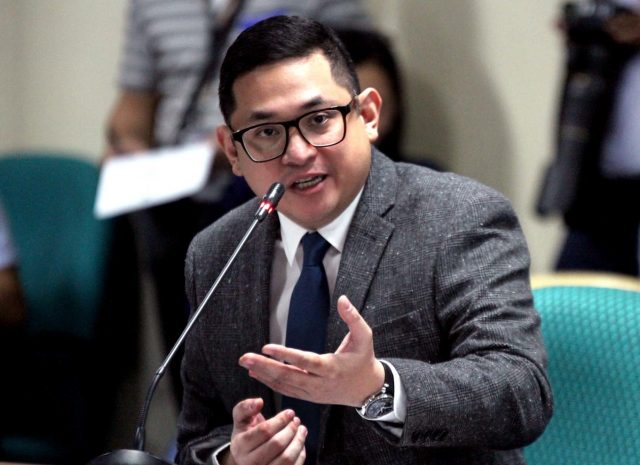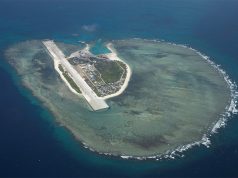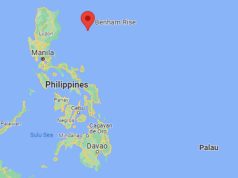
MANILA – Marine scientific research (MSR) is conducted for the benefit of all mankind, with undersea organisms used for food, medicine, cosmetics, and industrial applications. This is why, subject to the Philippines’ interest and domestic and international laws, the country’s maritime domain should be open to MSRs as conducted by both Filipino and foreign scientists.
This is according to National Security Adviser Hermogenes Esperon, Jr., who appeared at a Senate Committee on Science and Technology hearing on the Philippine (or Benham) Rise on Monday.
“It is in the Philippines’ national interest to encourage MSR in its maritime domains, balanced by the requirements of sustainable development and national security,” he said.
He argued that the Philippines also boosts its own capabilities as it partners with foreign scientists in MSRs, even as it was revealed that China’s Institute of Oceanology Chinese Academy of Sciences (IOCAS) violated the terms and conditions the Department of Foreign Affairs laid out in allowing it to stay in Philippine waters in Isabela and Mindanao to “deploy instruments” for six days last month.
Esperon said it is mandatory that foreign MSRs take in Filipino scientists on their expeditions; otherwise they will not be allowed to conduct the research. During the January cruise, however, the Filipino scientists were only on board for three out of the six days.
According to University of the Philippines Marine Science Institute (UP-MSI) director Dr. Fernando Siringan, the IOCAS initiated the partnership with UP-MSI through e-mails, followed by a meeting in Qingdao, China, then more e-mails.
Dr. Cesar Villanoy, also of UP-MSI, said the program had been discussed a few years ago, but for the January cruise, UP-MSI could not provide personnel for the whole six days because they had work and classes to attend to. But, he said, the Filipino researchers were given all the data the Chinese had collected after they disembarked. The Philippine leg was part of a month-long cruise on the part of the Chinese, where they explored an area east of the Philippines’ exclusive economic zone.
Villanoy explained that IOCAS had applied for a permit in July 2017, and by the time it was approved by the DFA in December, the ship was already at sea. UP-MSI scrambled to prepare for the January part of the cruise, when it would be in the Philippines.
TEAM OF 4 PH SCIENTISTS
DFA Maritime and Ocean Affairs Assistant Secretary Lourdes Yparraguirre said the DFA had created a team of four scientists – including two from the UP-MSI – to join the cruise. She added that a low-pressure area had affected the number of days that the Filipinos were aboard the Chinese expedition.
What happened was discussed at the “bilateral consultations mechanism” between China and the Philippines in Manila on February 13. Yparraguirre said that the Philippines stressed that all MSRs to be conducted by the Chinese in Philippine waters should have Philippine consent, and that the terms and conditions laid out in the note verbale approving the conduct of research should be followed.
According to Esperon, China had applied to conduct MSRs in the Philippine Rise and Luzon Strait 18 times from 2000 to 2018. The DFA only approved two of these. In the same period, China also applied 25 times to conduct MSRs in other Philippine waters, with only three of these approved.
The most number of approvals for MSRs was given to the United States during the same period: 13 out of 13 for the Philippine Rise and Luzon Strait, and 30 out of 32 for other Philippine waters.
Japan had a perfect approval rate, with nine out of nine for the Philippine Rise and Luzon Strait, and 12 out of 12 for other Philippine waters.
South Korea got four out of four applications approved for the Philippine Rise and Luzon Strait, and five out of six for other Philippine waters.
Russia, France, and Germany also had approvals to conduct MSRs in other Philippine waters from 2000 to 2018: one out of one application for Russia; one out of five for France; and six out of eight for Germany.
Armed Forces of the Philippines Chief of Staff Rear Admiral Erick Kagaoan said that the Philippine Navy is able to monitor ships doing research in the Philippine Rise unless they turn off an identification system called “AIS”.
Asked by Senator Bam Aquino, chairperson of the Senate Committee on Science and Technology, whether there are incursions in the area for which no permits were given by the Philippine government, Kagaoan replied, “Yes your honor, there were monitored presence of vessels that I would say did not have clearance.”









